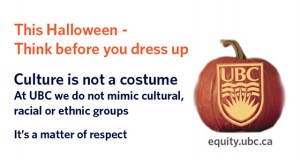The Centre for India and South Asia Research, UBC Nepali Students Association and Institute of Asian Research invites you to:
”SYMPOSIUM ON NEPAL: Reconstruction and Regeneration After the Earthquake”
Join us for a discussion of Nepal’s experiences with relief and reconstruction after the devastating earthquakes of April and May 2015. Speakers will give brief presentations highlighting economic, engineering, linguistic and socio-political dimensions of earthquake response in Nepal,with a focus on Vancouver-linked initiatives.Followed by discussion and dialogue: Open floor. All are welcome
UBC Nepali Students Association will be selling homemade momos (Nepali dumplings) as a fundraiser for ongoing efforts in Nepal after the discussion. Kindly RSVP.
Thursday, September 24, 2015
Time: 4:00-7:00 pm
Location: Conference room #120
C.K. Choi Building, 1855 West Mall
MODERATOR:
Dr Tsering Shakya,Institute of Asian Research, UBC
SPEAKERS:
Dr Bishnu Pandey, Civil Engineering, BCIT
Dr Sara Shneiderman, Anthropology and the Institute of Asian Research, UBC
Dr Ratna Shrestha, Economics, UBC and Nepali Heritage Charity Foundation (NHCF)
Dr Mark Turin, Anthropology and First Nations and Endangered Languages Program, UBC
Divergences and Convergences of India: China Contemporary Relations – Wednesday, September 30th Ahmad Zahir Faqiri is a former Diplomat for Afghanistan and is going to be delivering a lecture in Room 120 of the C.K Choi Building, 4pm to 5:30pm on Wednesday September 30th. This lecture will focus on the dynamics and driving factors of the China -Indian relationship are with particular focus on maritime security, economics, energyscourge of regional terrorism and bilateral dialogue. Since the 1962 China -Indian War, there have been competitive elements within the China-Indian relationship.
Prior to his official visit to Beijing Prime Minister Modi in a press briefing highlighted with confidence that “My visit to China would be a new Milestone for the entire Asia”, which begs the question: What does Modi really want to bring to Asia? Mr. Faqiri has thoroughly researched India’s relationship with China and would like to share his expertise.
This is a free and open lecture to the public, so please feel free to join us. No RSVP required.
Source: Institute of Asian Research UBC

